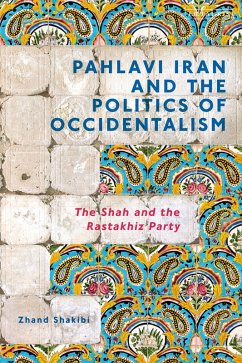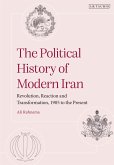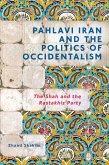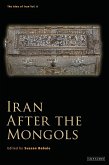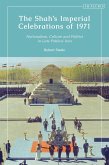Zhand Shakibi presents a new interpretation of the political and social dynamics of the last decade of the Shah's rule that challenges the binary view of pro-West Shah and anti-West Ayatollah by drawing attention to the Pahlavi state's reaction to the intellectual and societal backlash against cultural and moral Occidentalism in its last decade. Revising the dominant historiography of the Pahlavi ideological and discursive approach to the West, this book draws attention to the changes in the attitude of the Shah, the Empress and state intellectuals towards the position and imagery of the West in state conceptions of the authenticity of Iranian national culture and identity. Drawing on a wide-range of primary sources, Shakibi presents the multi-faceted relationship of the Pahlavi state to the West and the institutions that were created to manage this such as the Rastakhiz Party. This study argues that the Pahlavi state, having recognized this backlash, attempted to limit the threat to its legitimacy by reformulating intellectual discourses of anti-West Occidentalism and incorporating them into the ideology of the Rastakhiz Party. In so doing it played a critical role in exacerbating societal sensitivities about the spread of Western influences.
Bitte wählen Sie Ihr Anliegen aus.
Rechnungen
Retourenschein anfordern
Bestellstatus
Storno

